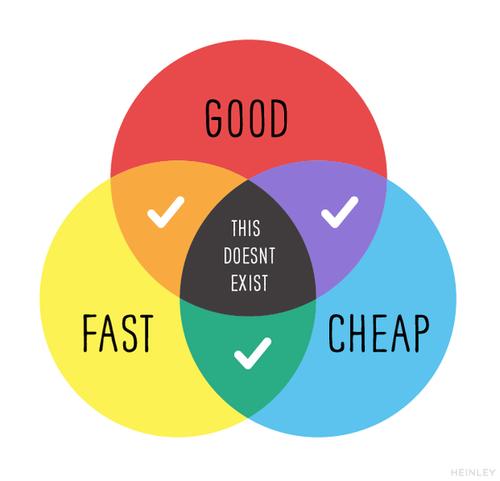I’ve been reading about various breakthroughs in battery world for past decade or so. So far none ended up in a consumer product.
You can go and buy sodium batteries already. They’re not competitive with Lithium ion batteries in many mobile applications, but very much competitive for everything where price is more important than size or weight.
Lithium has decades of research and industrial scaling behind it, it’s hard to break into that. But especially sodium is on a pretty good path to replace it in large scale storage applications.
Sodium-ion batteries have been in development since 1970s and the lithium-ion batteries have been in development since 1960s. Not much of a difference.
It’s not just the amount of time. The portable electronics market and the electric car market both settled on lithium batteries, which created a huge demand for that particular technology. Over the past 2 decades there has been a massive incentive to develop smaller, denser lithium batteries.
There may be interest in developing other battery technologies, but nothing like the amount of money and effort being spent on lithium batteries.
And before that there were several decades of massive incentive to develop smaller more powerful ICE engines.
Lithium probably has some room to grow, but it also has a lot of problems like volatility and materials sourcing. EV manufacturers have been searching for ways to make better/cheaper/denser batteries, not better/cheaper/denser lithium batteries. They’ve been actively searching for alternatives.
EV manufacturers have been searching for ways to make better/cheaper/denser batteries, not better/cheaper/denser lithium batteries.
Sure, it’s the lithium battery manufacturers that are invested in making better lithium batteries. Everyone has been buying their products for decades and they want that to keep happening, so they pour resources into research and development. And they have a lot of resources, because everyone has been buying their products.
Once a market settles on a particular technology it becomes self-feeding and tends to accelerate. It’s difficult for a competing technology to break in primarily because of momentum - it’s hard to catch up.
A device manufacturer might be interested in using a different battery technology, but if they have a whole design and production process already built around lithium batteries then it’s not just the battery that they have to change. It’s their logistics chain, on-device electronics, design theory and possible regulatory concerns. Changing an established system is expensive, so that has to be justified somehow.
I’m not saying that it can’t happen - I’m sure that it will eventually. What I’m saying is that in order for a different battery technology to really change the market and push lithium out, it will have to be significantly better (not just marginally better).
I’ve been reading about battery breakthroughs for decades. And I remember when the latest in battery tech was alkaline, then Ni-Cd, then Li-Ion, and now LiPo. All of those have ended up in consumer products.
Also, the battery pack for a cell phone 30 years ago was about the same volume and weight of an entire smartphone, with a capacity of about 500 mAh. They are also far cheaper if you account for inflation.
Batteries have improved incapacity by about a factor of 10 and the cost per watt-hour has reduced by about 99% in the last 30 year. All without a single advancement in the technology, apparently.
/s
I wouldn’t call it a single advancement but hundreds. The materials might be largely the same but manufacturing is huge. When you roll up some metal to make a battery then increasing the number of layers is a huge challange when they’re already tiny.
All without a single advancement in the technology, apparently.
What do you mean by that?
I would say there have been a great many advancements in technology. I mean, that’s what all these improvements are, right?
It was sarcasm, which seems to be harder to convey in text than any number of battery advancements.
You skipped Ni-MH there, that was major for not having the memory problems of Ni-Cd. We still use those in AA and AAA rechargeable batteries.
Ni-MH production for EVs was effectively shutdown by Texaco and later Chevron through patent acquisitions.
https://en.m.wikipedia.org/wiki/Patent_encumbrance_of_large_automotive_NiMH_batteries
totally TIL worthy
Holy shit. I had no idea.
Chevron is pretty fucking evil for a lot of reasons, but we’ll add this one to the pile, I guess.
Ni-MH
iswas also in a lot of hybrid cars.Are they still making NiMH hybrid packs?
Lithium is far superior
I don’t know in general. I was recently shopping for a UX 250h and I know they only just switched to lithium for the 2025 model with the nx name change.
Toyota switched the camry hybrid from NiMH to lithium for the 2020 model year.
In my head I meant hybrid cars on the road, not necessarily in new production.
A little pedantic note, LiPo is still a type of Li-Ion (maybe I got that right)
and the bigger recent breakthrough was LFP (Lithium iron phosphate / LiFePO4)
And probably safe to call Sodium-Ion and solid state the next big phases of development
LFP is actually a relatively old battery technology, it’s only now that the patent is expired that it’s starting to breakthrough (outside of China, they somehow got a license if I understand it correctly).
You can buy sodium ion cells online right now. It’s not the next phase, it’s here.
Hey! Don’t screw up Lemmy’s Debbie Downer vibe!
/s
LifePo4 batteries aren’t Star Trek levels of advancement, but they sure have changed my life and those of a lot of people I know.
But I do get your drift. It seems like everyday there’s some new breakthrough, and all we see of it is unnecessary AI.
The same thing happened with a lot of awesome things you’re using right now. But I understand your impatience.
It takes around a decade to scale up a process. You’d be shocked at how long it takes to discover something, get investment, file patents, acquire licenses, construct facilities, manufacture the product, and sell to customers. And that’s what it takes to get to just the starting line of being in business.
QuantumScape is currently building the mass production line for a solid state battery and has been sending prototypes out to their auto manufacturer clients for testing.
This Undecided with Matt Ferrell video has a good breakdown.
Disclosure: I own 100 shares of QS
$5.05 a share. So for a mere $505 I could also own 100.

This seems like a pretty big deal, right?
Indeed, the fact that they filed a patent is also an indicator that this is not purely an experiment, but a tangible way forward. Let’s hope this can scale up quickly.
it’s not just another article about a new revolutionary discovery because that’s the only way to have funds?
Eh, the patent office hasn’t had standards for practically for like a century, just that you describe a novel method
There’s a pile of battery patents that are all game-changing but when a company decides to make a dedicated factory that’s when you know shit is going down.
Yup. Studies on sodium batteries has been going on for years. If they finally achieve good enough state this is big since lithium is limited and expensive while sodium is everywhere. However sodium batteries will never be effective as lithium batteries because of the atom size. Lithium is much smaller than sodium.
Well we are in dire need of grid size storage so this is excellent then.
True, but this is solid state so it may be higher density than current Lithium based batteries. But it might not beat a hypothetical lithium solid state battery. On the other hand, sodium batteries today beat out lithium in many other ways than capacity, and if those things are true for solid state then as long as there is a big enough jump in capacity due to the solid state transition then I think sodium is going to be the go-to for most uses in the future.
Don’t actually know about density differences but I’m quite positive that sodium batteries will be used in many sectors because it will be much cheaper. Probably not on cars, maybe not on phones as well. It will be enough for all other small appliances I think.
Wait… did they do all three?

“Global action requires working together to access critically important materials,” Meng said.
So… nope.
Huh ?
What information are you trying to convey by quoting that sentence from the article?
If materials are not easy to access, then it won’t scale cheaply.
You might want to re-read the article. That quote was talking about lithium ion batteries.
This scarcity, combined with the surge in demand for the lithium-ion batteries for laptops, phones and EVs, have sent prices skyrocketing, putting the needed batteries further out of reach.
Lithium deposits are also concentrated. The “Lithium Triangle” of Chile, Argentina and Bolivia holds more than 75% of the world’s lithium supply, with other deposits in Australia, North Carolina and Nevada. This benefits some nations over others in the decarbonization needed to fight climate change.
“Global action requires working together to access critically important materials,” Meng said.
Thanks for pointing this out better than I would have!
I know colonizer-speak when I see it.
I know everyone wants to point out that she may be referring to the brutal colonialist exploitation that lithium ion battery technology rests upon - but the way the quote is placed and framed tells me instead that we are not being told everything about this “techno-miracle.”
But the materials are more easily accessible for sodium. It’s just supposed to have less capacity by volume.
Edit: that portion of the article you mentioned is talking about lithium ion
Fuck
there should be 4th bubble “easy”
that’s what fast is for.
Probably not fast. You would have to setup tooling and manufacturing and supply chain. That takes years.
Ah, these are the aluminum dust under pressure solid state batteries. I wonder how much pressure.
It does say “during assembly […] to form a solid current collector while maintaining a liquid-like contact with the electrolyte”.
After it’s made it could be not under pressure at all.
I would think they’d need to keep the liquid like contact that’s available under pressure… But I’m no battery scientist.
Would be interested in seeing/reading more about it, don’t have/want the subscription to read the white paper. Just seems like it could be somewhat like mirrors where it’s important for the glass to be liquid at one point so there’s no distortions and a strong bond but then once it’s constructed it just sits there.
They have the pressure of reversing climate change so very high pressure
The decarbonization of our power grid will thankfully not be up to a single technology, but a multitude which are all seeing development simultaneously. Solar is reaching for better efficiency and less harmful creation, batteries of all shapes, sizes, and concepts are popping up from everywhere. It feels more like a race now than a slow decline into uninhabitability.
Any way to read the paper published without subscribing to nature?
Shirley Meng’s showing off her lemon jacket and big watch drip. Power on.
Calling BS
No batteries are ever anode free so you are right to call bullshit on this title …
Yet, what they meant was that, at the time of fabrication, there is no sodium at the anode side and only while charging the battery, sodium is deposited so creating the anode.Also BS because this is such a common BS article “Amazing breakthrough in batteries will change everything and is 100 times better!”
Always BS
But that’s not what it’s really claiming. I don’t think this technology would even replace lithium ion, it would be better suited for power grid or data center storage.










